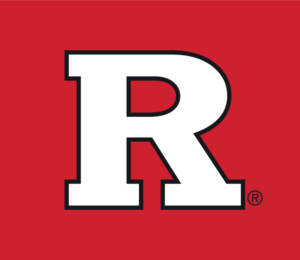Personal Injury Lawyer in Dover, NJ
We are a team of highly skilled personal injury attorneys. If you have a bodily injury legal issue in or around Dover, New Jersey, we can help. Call us today for a free consultation.
Dover Personal Injury Lawyers
You face many challenges after suffering a personal injury due to someone else’s actions. You might experience physical and mental disabilities that interfere with your ability to work or even perform necessary tasks like showering or driving. Doctors may prescribe treatment and therapy to help you recover from your injuries, but you might not be able to pay for it if you can’t work.
These aren’t minor problems. Over 66% of bankruptcies result from medical expenses or health-related income losses. Injuries caused by someone else’s negligent or intentional actions can ruin your physical health and financial well-being.
You should not have to suffer this burden. Dover personal injury lawyers from Garces, Grabler & LeBrocq — GGL for short — can analyze your situation and identify the legal rights and options you have for pursuing a legal claim against those responsible for injuring you. Contact us to discuss your injuries and the compensation you can pursue.
Types of Personal Injury Claims We Handle
Personal injury law covers a broad range of claims. Each type of case raises unique legal and factual issues. Our firm was founded over 30 years ago, and our experience with all aspects of personal injury law allows us to provide knowledgeable, skilled, and innovative legal representation.
Some types of injury claims we handle include the following:
- Auto accidents
- Motorcycle accidents
- Truck accidents
- Rideshare accidents
- Public transportation accidents
- Slip and fall accidents
- Construction site accidents
- Negligent security
- Dog bites and animal attacks
- Product liability
- Clergy sexual abuse claims
- Nursing home abuse and neglect
- Sexual abuse claims
- Wrongful death
Regardless of how you were injured or who injured you, we use our decades of experience to help you stand up to at-fault parties and their insurers to aggressively pursue fair compensation for your injuries.
Personal Injury Cases in Dover
Personal injury cases arise under a field of law called torts. Tort law rests on the following three theories:
Negligence
Negligence lies at the heart of most injury claims. Examples of negligent torts include:
- Traffic accidents
- Slip and fall accidents
- Negligent security
- Negligent supervision and training
The benefit of a negligence claim is that you and your injury attorney do not need to prove the at-fault party’s state of mind at the time of the injury. Instead, you only need to prove four elements:
- Duty of care
- Breach of duty
- Damages
- Causation
The duty of care arises based on the relationship between you and the at-fault party. Drivers owe a duty of care to motorists, pedestrians, and bicyclists. Similarly, property owners and tenants have a duty to keep guests reasonably safe while on their premises.
A breach happens when the person who owes a duty fails to exercise reasonable care. This is an objective standard that is measured against what a reasonable person in the same situation would have done.
You and your lawyer must prove a causal link between the breach of duty and any losses you suffered due to the incident. Causation includes two parts. First, you must show that the breach of duty was a substantial factor in bringing about the injury. Second, you must show the breach was the type of act or omission that could foreseeably cause an injury.
Intentional Torts
New Jersey law recognizes many types of intentional torts. To prove an intentional tort, you and your lawyer must prove the other party intended to perform a harmful action. You don’t need to prove they intended to harm you or cause your specific injury. Instead, merely proving the harm was intentional rather than accidental will often be enough.
Some examples of intentional torts include the following:
- Battery results from intentional, harmful contact
- Assault is an intentionally created fear of imminent battery
- False imprisonment is an intentional and unlawful physical restraint
- An injury lawyer can use these torts to pursue injury claims for scenarios such as:
- Sexual abuse
- Nursing home abuse
- Road rage
- Violent attacks
Importantly, some intentional torts also give rise to a claim of negligence against their supervisor or employer. In a case of clergy sexual abuse, a victim could pursue intentional tort claims against the abuser and negligence claims against the church for negligently hiring and supervising them.
Strict Liability
Strict liability claims apply to a limited set of dangerous activities. In New Jersey, the main areas where strict liability gets applied include:
- Product liability
- Dog bites
- Dangerous animal attacks
Strict liability means you do not need to prove the unreasonableness of the at-fault party’s actions. You do not even need evidence showing the at-fault party knew of the danger. Instead, you and your injury attorney must only show that the at-fault party was responsible for whatever caused your injury.
This means you can prove a dog owner is strictly liable for your dog bite injuries by showing the dog belonged to the owner and the dog caused your injury. You don’t need to prove the owner carelessly restrained the dog or knew of its propensity to bite.
No Fee Unless
GGL Wins
Common Types of Injuries People Suffer in Dover
Accidents can cause many kinds of injuries depending on the trauma experienced by the victim. Some common types of injuries suffered in Dover include:
FATAL INJURIES
Fatal injuries can happen in many ways, including:
- Severe blood loss
- Shock
- Brain damage
- Spinal cord damage
- Respiratory arrest
- Cardiac arrest
- Poisoning
After someone suffers a fatal injury, their personal representative or the executor of their will can pursue a wrongful death claim against those who caused it. To prove someone caused a fatal injury, you and your lawyer must show that the other party’s actions were a substantial factor in causing the death.
Suppose your spouse died in a car crash when someone ran a stop sign. But the death happened when the driver hit a light post, causing it to fall onto your spouse’s car. Even though the sequence of events was complex, the driver’s negligence in running the stop sign naturally and foreseeably led to the death.
BRAIN INJURIES
Brain injuries can range from mild to fatal. They can happen in several ways, including:
- Blunt trauma to the head
- Penetrating trauma that pierces the skull
- Violent shaking
- Oxygen deprivation
A common cause of brain injuries is car accidents. In a car accident, the brain shakes violently in the skull. As the brain shakes, it experiences pressure from pushing through the cerebrospinal fluid and meninges. The cellular damage produced by the pressure can cause the brain to swell.
Some types of brain injuries that may result from traumatic incidents include:
- Concussions
- Cerebral contusions
- Diffuse axonal injuries
- Subdural hematomas
Depending on the type and severity of brain damage, it can cause physical, mental, and emotional symptoms, including:
- Headache
- Impaired vision
- Impaired hearing
- Slurred speech
- Paralysis
- Numbness
- Tingling
- Confusion
- Amnesia
- Difficulty concentrating
- Personality changes
- Sleep disorders
- Emotional outbursts
- Coma
- Death
Brain cells do not grow back. As a result, a brain injury can leave victims with permanent physical, emotional, and cognitive disabilities.
SPINAL CORD INJURIES
The spinal cord carries signals between your brain and body. When trauma severs the spinal cord, you will experience permanent paralysis. The location of the injury will determine the extent.
A spinal cord injury in the neck will cause paralysis in all four limbs, the torso, and the abdomen. If the spinal cord gets severed just below the skull, the victim may die due to paralysis of the chest muscles that facilitate breathing. A spinal cord injury in the back will cause paralysis in the abdomen and legs.
Spinal cord injuries can happen when a foreign object severs the spinal cord. They also happen when a fractured vertebra dislocates and compresses or cuts the spinal nerves.
Doctors cannot repair a severed spinal cord. If the spinal cord has not been fully severed, the brain may rewire itself to regain some functions. But otherwise, victims will often suffer permanent disabilities from a severed spinal cord.
AMPUTATIONS
Amputations happen in two ways. Trauma can tear or sever a body part, removing it from your body. Trauma can also damage a body part so severely that doctors must remove it to save your life.
In either case, the most common reason underlying amputations is vascular damage. Your body cells need oxygen to live. Red blood cells deliver oxygen. When the arteries get damaged, the cells begin to die. If doctors cannot reconnect the blood vessels quickly, an amputation may be the only option for preventing gangrene and death.
NERVE DAMAGE
Nerve damage occurs when nerves get severed or stretched. Nerve damage causes symptoms such as:
- Radiating pain
- Numbness
- Tingling
- Weakness
- Muscle spasms
These injuries can happen in any accident. For example, you could suffer nerve damage when you grab a railing as you fall down the stairs. Your weight can stretch the nerves in your shoulder, producing symptoms in your arm and hand.
SPINE INJURIES
Spine injuries can happen in a few ways. An impact on your neck or back can damage your spine. These injuries can also occur when powerful forces cause your spine to hyperextend and then compress. The compression forces can fracture vertebrae and crush discs.
The greatest concern about spine injuries is how they can affect the spinal cord and the nerve roots branching from it. A fractured vertebra can sever or compress the spinal cord. A herniated or bulging disc can compress a nerve root.
In addition to any effects a spine injury might have on your spinal cord, it can destabilize your back. As a result, you could experience chronic back pain that prevents you from comfortably standing, sitting, or even lying down.
FRACTURED BONES
The enormous forces your body experiences after suffering a traumatic accident can fracture your bones. Simple bone fractures can disable you for six to eight weeks while they heal. But more serious fractures, like a shattered bone, may take a year or longer to heal.
Broken bones can produce serious complications such as arthritis, deep vein thrombosis, and pulmonary embolism. These complications can produce pain or permanent injuries.
SPRAINS AND STRAINS
Sprains happen when you hyperextend a joint. The ligaments holding the joint together stretch and may even tear. The damaged ligaments produce symptoms such as:
- Joint pain
- Limited range of motion
- Inflammation
- Joint instability
Strains occur when trauma causes your muscles and tendons to hyperextend. The tissues stretch and tear, resulting in symptoms such as:
- Muscle pain and weakness
- Swelling
- Stiffness
- Muscle spasms
Mild strains and sprains heal in roughly a month. Severe strains and sprains that involve a full-thickness tear will require more time to heal. In some situations, you may even need surgery to repair the torn tissues.
What To Do After a Personal Injury Accident
Your actions after a personal injury accident may affect your ability to recover injury compensation. You should take the following steps after suffering a personal injury accident:
Seek Medical Attention as Needed
Your top priority after an accident should be to make sure you and anyone else injured gets an appropriate level of emergency medical treatment. If you need an ambulance, ask for one or call 911. If your injuries were non-incapacitating, you should consider visiting your doctor’s office or an urgent care facility as soon as possible.
Visiting a doctor at this point has several benefits, including:
- Diagnosing your injuries, including any hidden conditions like concussions
- Developing a treatment plan
- Identifying any limitations on your activities to promote healing
- Documenting your injuries for any injury claims you pursue
If you do not visit a doctor within a reasonable time after an accident, questions may arise about the cause of any injuries you claim.
Document the Accident Scene
If you can, take photos or videos of the accident scene. If you cannot do so, try to find a friend, relative, or co-worker to document the accident scene for you.
You should also identify any potential witnesses. The at-fault party and their insurer will call into question everything you say about the accident and your injuries. It will help to have witnesses, photos, and videos to verify your side of the story.
Don’t Admit Fault
Insurers and insurance defense attorneys can use anything you say to fight against your claim. If you do or say anything they can interpret as an admission of fault, you will need to overcome it in the course of your claim.
Unfortunately, they may also twist your words into an admission, even if you did not mean them in that way. For example, if you apologize to the other driver, their insurer may argue that you would only apologize if you felt that you caused the crash.
Contact a Lawyer
Many accident victims attempt to handle their cases without hiring a lawyer. However, since most injury attorneys offer a free consultation, you can speak to a lawyer without risk or obligation.
In many situations, the lawyer will identify potential issues you did not spot. Even if you have a straightforward case, Dover personal injury lawyers can explain the law and your legal options. You can use this information to make informed decisions about your accident claim.
How Much Is My Case Worth?
Every case is unique, and there is no way to predict its exact value. But you can get an idea of the damages you can recover by looking at the types of losses that get compensated by insurers and courts. Damages recoverable in a personal injury case fall into three categories:
Economic Damages
Economic damages cover the financial impact of your trauma. These damages include all amounts you spent, became obligated to pay, or lost due to your injuries. Some common categories for these losses include:
- Past and future medical costs
- Past income losses
- Diminished earning capacity
- Out-of-pocket expenses
You will document these damages for your claim using bank statements, receipts, and other financial records. You will also need wage records to prove your lost income.
Non-Economic Damages
Non-economic damages cover the human impact of your injuries. Your life could change significantly after suffering trauma due to:
- Physical pain
- Mental suffering
- Disability
- Disfigurement
- Dismemberment
Your non-economic losses do not come with an inherent price tag. Instead, an insurer or jury must put a fair value on it based on the severity and nature of your injuries. For example, an injury with permanent symptoms will justify greater damages than one that only affected you temporarily.
Punitive Damages
Punitive damages are very rare. However, a judge or jury can award punitive damages to punish the at-fault party for egregious behavior and deter other entities from engaging in similar actions.
How Much Does a Dover Personal Injury Lawyer Cost?
Almost all personal injury lawyers in New Jersey charge a contingency fee. This fee is calculated at the end of a case based on the compensation the lawyer recovers.
Law firms typically quote contingency fees as percentages. Thus, a 33% contingency fee would earn the lawyer $3,300 when they successfully recover $10,000 for their client.
Contingency fees have several benefits for injured clients. First, you can hire high-quality lawyers without any upfront fees. This arrangement is important for injured people who face mountains of medical bills and may not be able to work.
Second, since the lawyer only gets paid when they win or settle the case, lawyers will be very selective in the cases they accept. If a lawyer offers to represent you on a contingency fee, it’s because the lawyer thinks you will win or settle your claim.
Why Hire GGL?
GGL was founded in 1991 to represent injured people in Dover and other communities in their pursuit of fair compensation. Our professional, knowledgeable, and aggressive litigators prepare every case as if it will go to trial. Our approach has resulted in over $1 billion in injury compensation recovered for our clients.
Our well-reviewed attorneys are dedicated to seeking justice for our clients against those responsible for injuring them. Contact us online or at 1-800-923-3456 to schedule a consultation to discuss your injuries and how we can help you seek justice for them.
No Fee Unless
GGL Wins
We've got you covered.
We are available 24/7/365

OFFICIAL PARTNER OF RUTGERS ATHLETICS
Personal Injury Lawyer in Dover, NJ
Address: 327 S. Salem St. Dover, NJ 07801
Phone: (973) 607-1120
Open 24/7 365
Office:
8:30-6:00 Monday
8:30-6:00 Tuesday
8:30-6:00 Wednesday
8:30-6:00 Thursday
8:30-6:00 Friday
Recent GGL Wins
Medical Malpractice
A 30-year-old pregnant woman went into labor. The doctor failed to take proper steps in the baby’s delivery, making the mother wait in the hallway for ten hours while the baby’s heart rate began to drop. The baby was delivered via C-Section; he was blue from lack of oxygen resulting in Cerebral Palsy.
$14 Million
Verdict
Construction Accident
Mediation award resulting from an industrial explosion causing disfiguring burns and severe orthopedic injuries.
$7,8 Million
Verdict
Auto Accident
31-year-old man who was cut off by another car causing his car to flip over. He sustained head injuries, facial injuries, and half of his pinky finger was amputated.
$3 Million
Verdict
No Fee Unless
GGL Wins
Request A Free Consultation
We've got
You covered
We are available 24/7/365

